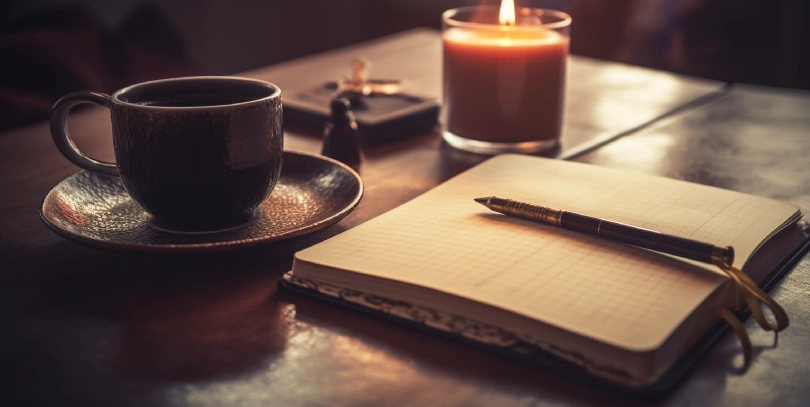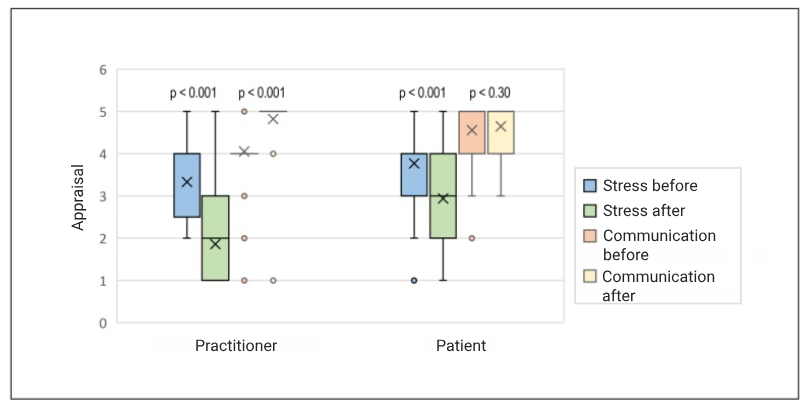How Journaling Helps Reduce Stress and Optimize Life

A diary serves as a reflection of our inner world. It allows us to become aware of the existence of things we hadn’t suspected before. This method of self-analysis enables us to see ourselves from an external perspective, something challenging to achieve in our everyday lives. Let’s consider the diary as our objective friend, striving to depict our life as it is.
The diary aids us in becoming better individuals and brings us closer to achieving our goals and intentions.
Scientific justification of journaling for stress reduction
We often don’t understand what determines our actions, what messages emotions are trying to convey, or where we make mistakes. We usually don’t reflect on what makes our lives better. Therefore, dedicating more time to these aspects is worthwhile.
We don’t know ourselves. That’s why recording something in a diary every day, even brief entries, is crucial. Only through these entries can we truly see ourselves. This is backed by science: Emotional and physical benefits of expressive writing for health.
It has been found that writing about traumatic, stressful, or emotional events leads to improvements in both physical and psychological health.
By describing one’s experiences and events, a person forms a coherent narrative about themselves, helping them understand who they are, how they live, and what they want.
Through diary keeping, a person gains more self-confidence, becomes more productive, and their uncontrolled emotions and habits transform into thoughtful and understandable formulations.
Every day, we interact with people, analyze them, and draw conclusions about their behavior and thoughts. Often, thoughts arise about what is wrong with them and how to advise them. And here, a proverb comes to mind:
To see a mote in someone else’s eye and not to notice a beam in one’s own.
In other words, such people see flaws and mistakes in others but are unable to analyze their own.
Now, imagine if you were to conduct such an analysis on yourself. It’s akin to looking in a mirror: seeing yourself from an outside perspective. Through self-analysis using a diary, we can understand who we are, what feelings we experience, and how our lives are structured. This is why our stress levels decrease—because we begin to understand ourselves better. Consequently, there is less uncertainty in life, which diminishes fear.
Evidence that stress decreases with self-expression through writing is presented in a scientific experiment that can be explored by following this link: https://www.ncbi.nlm.nih.gov/pmc/articles/PMC6907914/.
Simply spending three minutes a day recording your experiences and stressful situations can reduce overall stress levels. As a result, eighty-eight percent of patients and physicians reported that journaling reduced their stress and proved beneficial in improving their lives.

In the chart, we observe the results of survey responses before and after three minutes of mental activity (journaling). The higher the score, the more significant the reduction in stress is observed.
Journaling for life reflection
In addition to the scientifically proven benefits of keeping a journal for enhancing psychological well-being, it is also an excellent tool for making sense of one’s own life.
Record what you did, the decisions you made, and what you were thinking to capture this valuable information. Our memory works in such a way that over time, we forget the details of many events. Later, we sincerely wonder why failures repeat themselves or why we can’t achieve our goals.
At the end of each day, jot down how your day went and what emotions you experienced. Periodically revisit earlier entries to compare with your current state. By analyzing different periods, you can identify patterns that will help you build an effective life strategy.
The key is to write down everything that concerns you and what you consider important. Only then can you form a comprehensive picture of your life.
Journaling for life planning
A diary can be used not only for analyzing the past but also for recording what you want to achieve. However, simply listing desires and goals is not sufficiently effective.
Under each goal, write down why it is important to you and what changes it will bring to your life. Also, draw parallels with previous entries and determine if you are ready to achieve this goal now. If not, analyze past entries to identify what is hindering you from reaching it.
You will visually see what qualities and skills need to be developed to achieve the goal. Then, record how you can acquire the lacking qualities and skills. Specify the areas where you can develop them.
Make daily entries about your day, as in a regular journal, and observe the progress. The key is to reread the entries after some time, for example, after a week. This way, you can more objectively evaluate your actions and understand what mistakes you are making in reaching the goal.
Afterward, make adjustments to your actions and life, and then, again after a week, reread the entries from the previous week. This way, you are addressing mistakes, becoming more experienced, and developing effectively without significant delays.
How to keep a journal
Ideally, take pen and paper every day and jot down something for about 15 minutes. The more emotionally, vividly, deeply, and detailed you describe your experience and insights, the better.
Journaling on a computer
However, it’s understood that not everyone prefers the handwritten format of journaling. Personally, I prefer keeping my journal on the computer since I can type quickly, and my hand doesn’t tire as it might with pen and paper.
But here’s a crucial point: entries in a computer journal should not be edited. Write as it is, without embellishments. Analysis should come after the entry. However, even after that, no corrections should be made. After all, you are recording at the level of your subconscious, and this is the only way to obtain truthful information about yourself.
Volume of journal entries
Journal entries don’t necessarily have to be extensive. The key is to convey the essence of the day. When there’s genuinely something to tell, you’ll write thousands of words. But when inspiration is lacking, there’s no need to exert effort to extract lines from yourself; otherwise, you’ll lose all desire to keep the journal.
Let inspiration guide you: record just as much as is necessary.
Recording material for the journal on a dictaphone
Recording on a dictaphone is an excellent journaling technique to not miss any vital details of life. You can make short recordings of thoughts or events during the day—this takes 1-2 minutes. In the evening, listen to the recordings and process them, transcribing them into the journal.
This allows you to delve deeper into your life, analyzing information in real-time. You won’t miss the emotions you experienced at that moment.
What to record in the journal
Record absolutely everything happening in your life in the journal. It’s your world, and only you decide what is important to note.
For those finding it challenging to start writing, here’s a suggestion on where to begin journaling:
- Events and Life: Record what happened to you during the day. You can simply describe your day, even if nothing memorable occurred.
- Goals: Write down what you want to achieve, what you need for it, and the steps you’re taking to reach the goal.
- Emotions: Document the emotions you experienced throughout the day and what or who caused them.
- Worries: Scientifically proven, jotting down worries, fears, and anxieties helps reduce stress.
- Achievements: Write about all your successes. Make sure to note what you did to achieve your goal, the emotions you felt—describe the situation.
- Self-analysis: Record thoughts, events, and emotions, but now with specific conclusions.
- Relationships with People: Share thoughts about your relationships with people. How you feel about a particular person or your environment. Analyze the issue from your perspective and from the other person’s perspective.
Here are a few final tips on keeping a journal
- Starting and maintaining any habit can be challenging if it feels difficult. You must initiate and sustain it. Find a writing style that suits you—it’s your personal touch. Use what works for you. If you enjoy what you write, you’ll derive more pleasure from it, and you’ll have more motivation to journal.
- When writing in your journal, it’s essential to simply write what you feel like, without worrying about who might read it. A straightforward and honest entry about your feelings or ideas can help you cope with them. This journal is for you. It will help you remember. You can share it if you want to. It’s yours, and you should be able to write in it as you see fit.
- Journaling is a habit that requires daily effort. Starting and maintaining a daily habit can be challenging, especially in our chaotic and unstructured lives. Try to set aside time every day to sit down and write. Developing a habit takes time, so stick to it.
- If you’ve missed a few days in your journal, don’t worry, and certainly don’t give up! Just fill in the gaps as soon as you can. Even a short journal entry is better than nothing, and the longer the day stays empty, the harder it is to remember what happened. If you don’t have time to go into detail, even making a simple list of points can help you remember what happened when you have time to elaborate later.
- Journal entries can be beneficial for mental health today, but the real value comes after writing for some time and being able to look back on what you’ve written before. Journal entries are like letters to your future self, and reviewing the past is an excellent way to see your life from a different perspective. Journal entries can help recall significant events. Later on, you may not realize how important they were. By writing about these events in your journal, you can remember them in detail when you want to reminisce.
Remember, your journal is a blank canvas, and it’s entirely up to you how you paint it!
